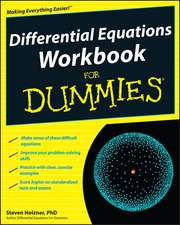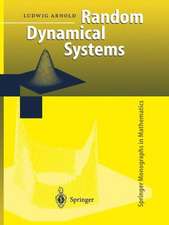Solving Hyperbolic Equations with Finite Volume Methods: UNITEXT, cartea 90
Autor M. Elena Vázquez-Cendónen Limba Engleză Paperback – iun 2015
Din seria UNITEXT
-
 Preț: 458.61 lei
Preț: 458.61 lei - 17%
 Preț: 402.50 lei
Preț: 402.50 lei -
 Preț: 403.82 lei
Preț: 403.82 lei -
 Preț: 434.06 lei
Preț: 434.06 lei - 20%
 Preț: 571.54 lei
Preț: 571.54 lei -
 Preț: 277.32 lei
Preț: 277.32 lei - 13%
 Preț: 427.17 lei
Preț: 427.17 lei -
 Preț: 335.81 lei
Preț: 335.81 lei -
 Preț: 283.76 lei
Preț: 283.76 lei -
 Preț: 271.54 lei
Preț: 271.54 lei -
 Preț: 361.12 lei
Preț: 361.12 lei -
 Preț: 221.27 lei
Preț: 221.27 lei -
 Preț: 345.56 lei
Preț: 345.56 lei -
 Preț: 455.00 lei
Preț: 455.00 lei -
 Preț: 393.99 lei
Preț: 393.99 lei -
 Preț: 459.92 lei
Preț: 459.92 lei - 17%
 Preț: 364.75 lei
Preț: 364.75 lei -
 Preț: 365.15 lei
Preț: 365.15 lei - 17%
 Preț: 363.85 lei
Preț: 363.85 lei -
 Preț: 329.06 lei
Preț: 329.06 lei -
 Preț: 358.93 lei
Preț: 358.93 lei -
 Preț: 352.80 lei
Preț: 352.80 lei -
 Preț: 348.27 lei
Preț: 348.27 lei -
 Preț: 242.17 lei
Preț: 242.17 lei - 15%
 Preț: 789.30 lei
Preț: 789.30 lei -
 Preț: 295.90 lei
Preț: 295.90 lei - 15%
 Preț: 560.69 lei
Preț: 560.69 lei -
 Preț: 426.72 lei
Preț: 426.72 lei -
 Preț: 450.33 lei
Preț: 450.33 lei -
 Preț: 357.43 lei
Preț: 357.43 lei - 17%
 Preț: 361.97 lei
Preț: 361.97 lei -
 Preț: 551.87 lei
Preț: 551.87 lei -
 Preț: 414.65 lei
Preț: 414.65 lei -
 Preț: 221.87 lei
Preț: 221.87 lei -
 Preț: 460.91 lei
Preț: 460.91 lei -
 Preț: 434.34 lei
Preț: 434.34 lei -
 Preț: 263.28 lei
Preț: 263.28 lei -
 Preț: 192.44 lei
Preț: 192.44 lei -
 Preț: 379.48 lei
Preț: 379.48 lei -
 Preț: 497.96 lei
Preț: 497.96 lei -
 Preț: 240.26 lei
Preț: 240.26 lei -
 Preț: 381.98 lei
Preț: 381.98 lei -
 Preț: 326.72 lei
Preț: 326.72 lei -
 Preț: 432.58 lei
Preț: 432.58 lei -
 Preț: 325.20 lei
Preț: 325.20 lei -
 Preț: 269.60 lei
Preț: 269.60 lei -
 Preț: 496.35 lei
Preț: 496.35 lei -
 Preț: 329.83 lei
Preț: 329.83 lei -
 Preț: 249.89 lei
Preț: 249.89 lei -
 Preț: 364.56 lei
Preț: 364.56 lei
Preț: 413.47 lei
Preț vechi: 516.84 lei
-20% Nou
Puncte Express: 620
Preț estimativ în valută:
79.12€ • 84.60$ • 65.97£
79.12€ • 84.60$ • 65.97£
Carte tipărită la comandă
Livrare economică 18 aprilie-02 mai
Preluare comenzi: 021 569.72.76
Specificații
ISBN-13: 9783319147833
ISBN-10: 3319147838
Pagini: 200
Ilustrații: XVII, 188 p. 55 illus., 43 illus. in color.
Dimensiuni: 155 x 235 x 15 mm
Greutate: 0.3 kg
Ediția:2015
Editura: Springer International Publishing
Colecția Springer
Seriile UNITEXT, La Matematica per il 3+2
Locul publicării:Cham, Switzerland
ISBN-10: 3319147838
Pagini: 200
Ilustrații: XVII, 188 p. 55 illus., 43 illus. in color.
Dimensiuni: 155 x 235 x 15 mm
Greutate: 0.3 kg
Ediția:2015
Editura: Springer International Publishing
Colecția Springer
Seriile UNITEXT, La Matematica per il 3+2
Locul publicării:Cham, Switzerland
Public țintă
Upper undergraduateCuprins
1 Part I Basic concepts and examples of environmental and industrial interest.- 2 Motivation.- 3 Hyperbolic conservation laws. Basic concepts and examples.- 4 Types of solutions to hyperbolic systems of conservation laws.- 5 Biographical summary of Professor Peter Lax.- 6 Part II Finite volume methods applied to the hyperbolic conservation laws.- 7 1D hyperbolic linear systems.- 8 1D Non-linear hyperbolic systems.- 9 Biographical summary of Professor Sergei Konstantinovich Godunov.- 10 Part III MATLAB codes for the studied methods.- 11 Codes for the linear transport equation.- 12 Codes for the Burgers equation.- 13 Biographical summary of Professor Eleuterio Francisco Toro.
Recenzii
“The book under review provides the background necessary to understand how these numerical methods work, as well as description and analysis of finite difference, upwind, and finite volume schemes and codes for several of the classic methods in common use. ... I recommend this text to advanced undergraduates … or to graduate students looking for a companion text to go with one of the weightier books on hyperbolic conservation laws. ... I will surely recommend this edition … .” (Donna Calhoun, SIAM Review, Vol. 59 (1), March, 2017)
“This book presents an introduction to finite volume methods for hyperbolic equations. It is designed as a textbook for Master's courses in mathematical engineering or industrial mathematics. … Each part of the book closes with a short biographical summary, on Peter Lax, Sergei K. Godunov and Eleuterio F. Toro, respectively.” (Raul Borsche, Mathematical Reviews, May, 2016)
“This book presents an introduction to finite volume methods for hyperbolic equations. It is designed as a textbook for Master's courses in mathematical engineering or industrial mathematics. … Each part of the book closes with a short biographical summary, on Peter Lax, Sergei K. Godunov and Eleuterio F. Toro, respectively.” (Raul Borsche, Mathematical Reviews, May, 2016)
Notă biografică
Prof. M. Elena Vázquez-Cendón, Department of Applied Mathematics, University of Santiago de Compostela, Spain.
Textul de pe ultima copertă
Finite volume methods are used in numerous applications and by a broad multidisciplinary scientific community. The book communicates this important tool to students, researchers in training and academics involved in the training of students in different science and technology fields. The selection of content is based on the author’s experience giving PhD and master courses in different universities. In the book the introduction of new concepts and numerical methods go together with simple exercises, examples and applications that contribute to reinforce them. In addition, some of them involve the execution of MATLAB codes. The author promotes an understanding of common terminology with a balance between mathematical rigor and physical intuition that characterizes the origin of the methods. This book aims to be a first contact with finite volume methods. Once readers have studied it, they will be able to follow more specific bibliographical references and use commercial programs or open source software within the framework of Computational Fluid Dynamics (CFD).
Caracteristici
Numerous step-by-step tutorials help the reader to learn quickly A special chapter on next generation Flash prepares readers for the future Includes ten tips on how to protect flash sites from hackers Includes supplementary material: sn.pub/extras









